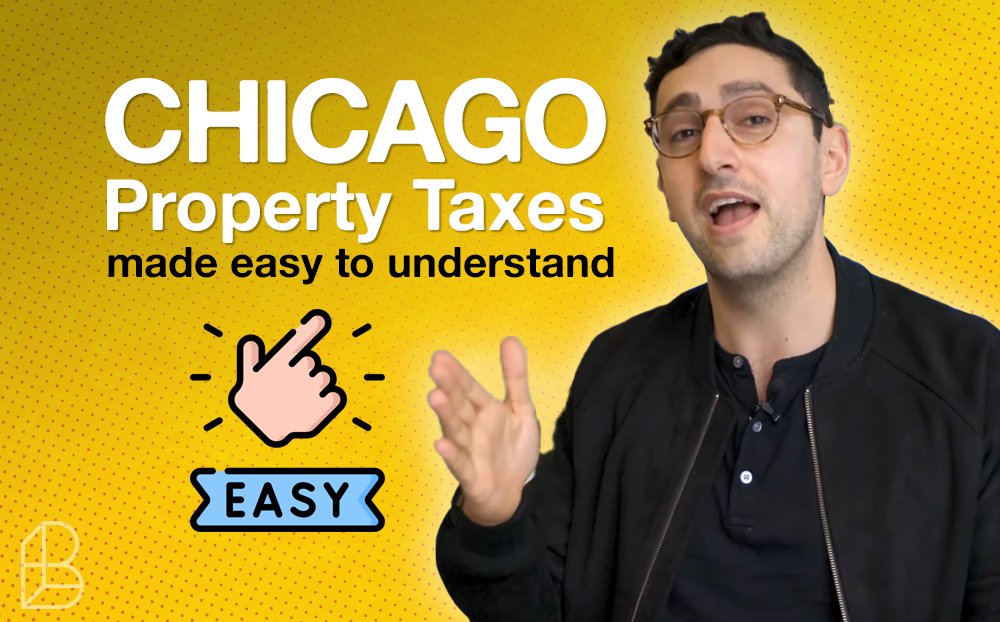If there is one thing we can all collectively hate together, it’s paying taxes!
Do you ever wonder why your property tax bill seems to keep growing every year? Property taxes can feel confusing and overwhelming, especially if you’re a first time home owner or you’re thinking about buying your first property in the near future.
We’re going to break down how it all works in plain English so that it’s no longer a mystery. It won’t reduce your property tax amount, but at least you’ll know what you’re paying.
What are property taxes?
If you own a home, unfortunately you’re paying property taxes to the city. It’s one way that the municipality collects taxes to pay for things we all enjoy, like schools, roads, and emergency services in your neighborhood.
Like a potluck party, we’re all chipping in together, but how much you pay depends on the size of your house, not how much you eat at the gathering.
How are property taxes calculated?
The first thing you need to know is that your property has an assessed value. This is not the same thing as what it could potentially sell for if you listed it for sale.
The assessed value is typically lower than the market value, and it’s an amount that the government thinks your home is worth for tax purposes. As a broad example, if your home could sell today for $300,000, the assessed value might be something like $90,000. (Expect the assessed value of your home to be updated every 3 years)
In Illinois, we use something called an ‘equalization factor’ to make sure that taxes are applied fairly across different areas. This would be a number that would be multiplied by your assessed value to get an adjusted value so that it’s fair for everyone.
For example, the equalization factor for Cook County in 2023 was 3.0163.
There is also the ‘tax rate’ which depends on the neighborhood you live in, and varies based on how much the local government needs to collect to pay for schools, roads, and other services.
Breaking Down The Calculation In An Example
- First we start with the market value of your home. Let’s say it’s $300,000.
- We multiply that by the assessment rate (in Cook County it’s 10%): $300,000 x 10% = $30,000 (assessed value)
- We now multiply that amount by the equalization factor (3.0163 in Cook County): $30,000 x 3.0163 = $90,489 (adjusted value)
- Finally, we apply your local tax rate (let’s use 7%): $90,489 x 7% = $6,334.23
This means that you’d owe $6,334.23 for your property taxes this year.
Homeowners Exemption
If you own a home as a primary residence (meaning that’s where you live), you’ll qualify for a tax break that will reduce the amount of property taxes you owe.
In Cook County, the exemption rate is a fixed reduction applied to the equalized assessed value (EAV). As of 2023, the exemption reduces the EAV by up to $10,000.
By the way, there are other exemptions available such as the Senior Citizen Homestead Exemption, the Veterans Exemption, and the Long-Time Homeowner Exemption.
Now that we can get up to $10,000 knocked off our EAV amount, let’s revisit the calculation above. This time, we’ll put it into a table so that it’s easy to digest.
| $300,000 | Estimate Market Value |
| x.10 | Assessment Level (10% for residential properties) |
| $30,000 | 2023 Assessed Value |
| x 3.0163 | 2023 Equalization Factor |
| $90,489 | 2023 Equalized Assessed Value (EAV) |
| -$10,000 | 2023 Homeowner Exemption |
| $80,489 | 2023 Adjusted Equalized Assessed Value |
| x.07 | 2023 Tax Rate at 7% |
| $5,634.23 | Estimated Tax Bill |
With your homeowner exemption, your final tax bill would be $5,634.23.
By the way, if this is too many numbers for you, the easiest way to determine your property tax rate is by visiting the Cook County Treasurer’s website, where you can enter in your property PIN number or address, and it will give you exact rates for your home and location.
Chicago’s property tax rates may seem high, but there are other places in Illinois that are equally high, if not higher. For example:
- Algonquin: 5.65%
- Wheaton: 6.63%
- Aurora: 7.81%
- Naperville: 5.99%
- Rockford: 9%
What Can You Do If Your Taxes Seem Too High?
If you think your assessed value is too high, you have the option of contacting the municipality and requesting a reassessment. Don’t be intimidated by the process – it is your right as a homeowner!
Why Do Property Taxes Keep Going Up?
As mentioned earlier, your property will be reassessed every 3 years and you can expect your assessed value to go up (especially if the value of your property is also going up).
Don’t forget that tax revenue is critical for the municipality to have funds to cover essential services. Chicago’s pension debt is one reason you won’t be seeing taxes go down anytime soon. The city has to fund retirement plans for public employees, and a portion of your property taxes goes towards this fund.
Final Thoughts
When you receive your tax bill for the year, don’t just blindly pay it. Take some time to look for mistakes and make sure that you understand where your tax dollars are going.
We’re the Ben Lalez Team, and besides property taxes, there are a whole bunch of other things we can help you with when it comes to property ownership.
If you’re thinking about buying soon, don’t let the costs of owning a home surprise you. We’re experts in Chicago real estate, because we’ve spent the last 10 years helping over a thousand families navigate the home ownership journey.
Give us a shout and we’d love to share our insights with you!


